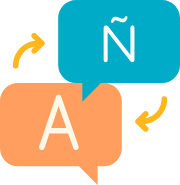Result for Documentation and evaluation
Developing questions Consider inviting community members to contribute to the model development. Think about a logic model as a “living” document, flexible, open to different perspectives, and changing as the program grows and changes too. Logic model discussions can help spur evaluation questions about the process, activities, or outcomes of programs. […]
Participatory evaluation What would happen if you invited the people at the table into the kitchen? What if community members understood the process and resources available for a program before evaluating the results? Including participatory research methods in your evaluation gives power back to survivors and youth witnesses of violence and […]
Choosing an external evaluator Oftentimes we find ourselves with the possibility of having to hire a person or team of evaluators outside of the organization. This situation opens the door to new experiences and it would be helpful to have someone who already has experience working in your community. To help […]
Evaluation plan This section will help you develop an evaluation plan around the culturally specific elements of your work. In order to build the best plan possible, please familiarize yourself with the background content that went into developing this section. Here is a step by step process for this section. First, […]
Culturally specific principles As noted in the “What is Principle-Based Evaluation?” having cultural specific principles can help guide an organization in measuring principle driven outcomes. When thinking about the work that they do, our workgroup organizations noticed that they really had not had the opportunity to write down the ingredients […]
Principle-based evaluation Principle-based evaluation is focused on “how” the work is done and the principles that underlie and drive the work. As many cultural-specific organizations are driven by values related to cultural affirming practices and social justice, this type of evaluation is helpful in exploring and documenting culturally specific work. From […]
Enhancing community evidence Have you ever felt that the evidence that you have documented is missing something? Does it feel like you are familiar with the various ingredients of your organization’s work however a critical spice is missing? Is that missing component the richness of the work that you do? The […]
How do I spread the word? Sharing the evaluation results is just as important as conducting an evaluation. Your organization already has great lessons about the program (program successes, its weakness and its strengths) that deserve to be shared as it will benefit others. This is also a great opportunity to […]
How do I evaluate a program? As we mentioned in the previous section, evaluating a program is in many ways similar to cooking. You start by selecting a recipe, gathering all the ingredients, and then transforming them into a delicious meal. In evaluation, you start by deciding the type of evaluation […]
What do I need? There are many ways to collect information about your program and each approach has its strengths and weaknesses. All of the data you collect forms part of the information you can utilize for your evaluation. Types of information As a general rule, evaluation information is organized into […]









